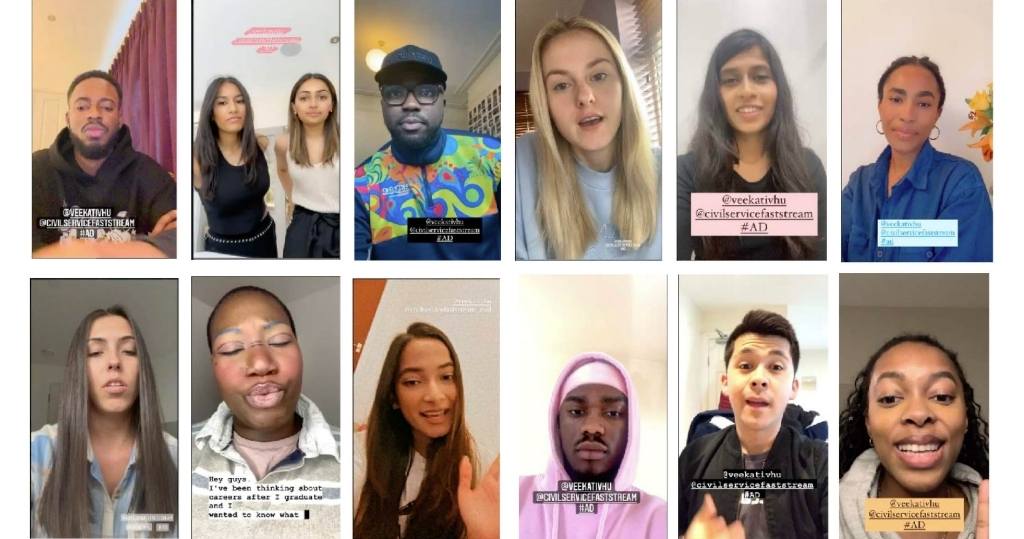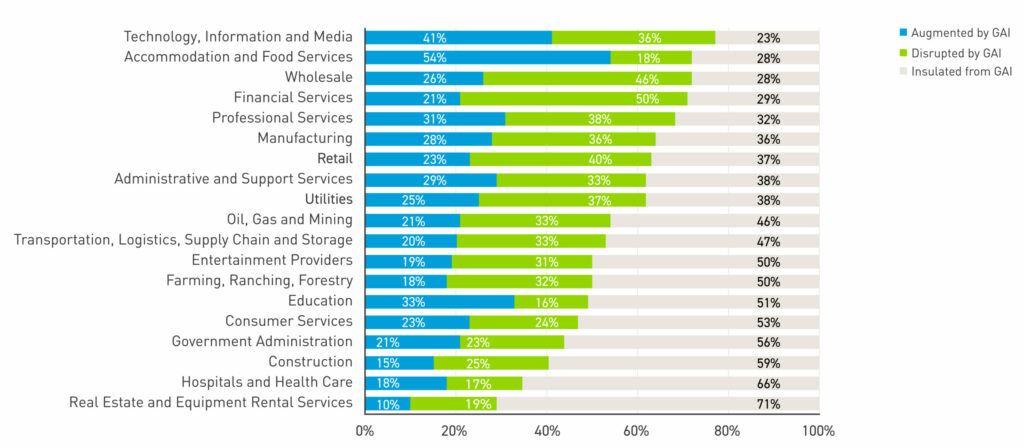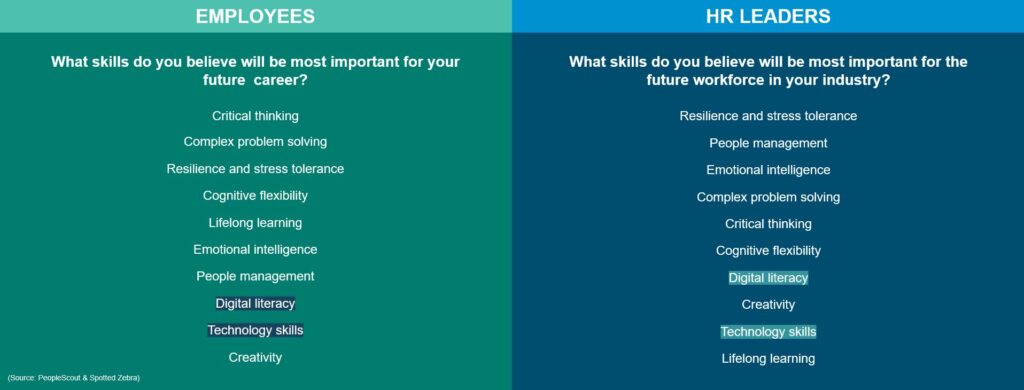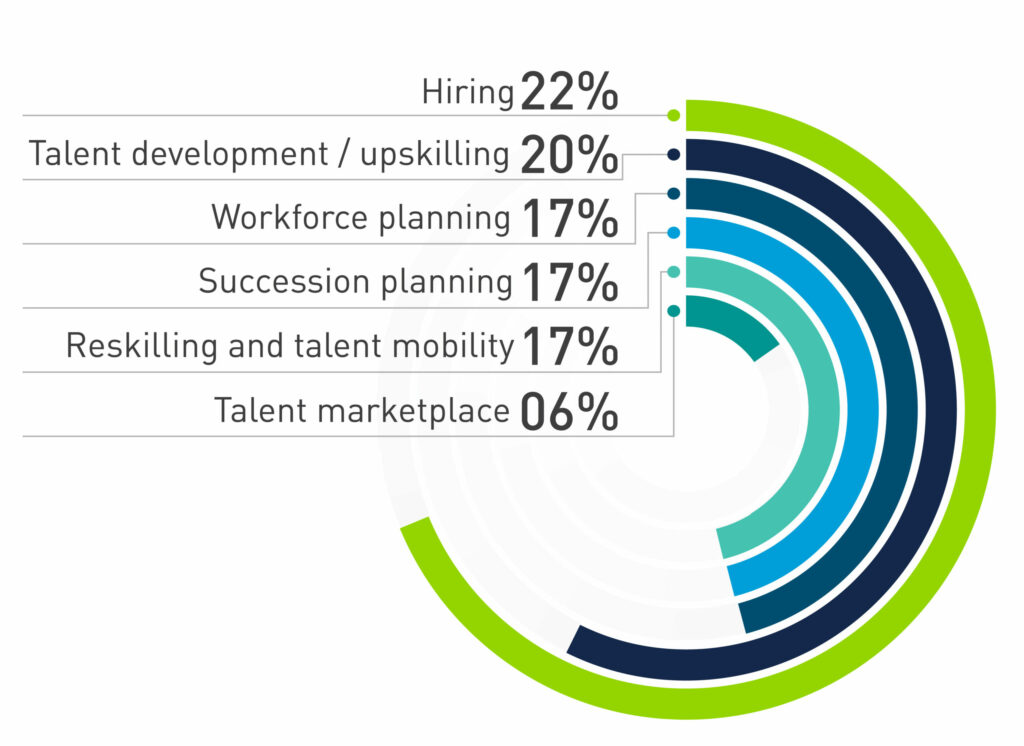Candidates can see and engage with your brand at hundreds of touchpoints before ever seeing a job posting or visiting your career page. Prospective employees research companies extensively through social media, employee reviews and digital content long before they consider applying. With remote and hybrid work now standard, an organization’s digital presence has become the primary way candidates form impressions about company culture and values. While this shift may sound daunting at first, digital recruitment marketing and the rise of social media mean organizations today can spread their message and establish a strong knowledge of their employer brand with prospective candidates—often before those candidates even think about looking for a job. Regardless of the economic climate and whether we’re experiencing talent shortages or market abundance, a strong employer brand social media strategy is imperative to an employer’s recruitment mix.
Building Your Employer Brand Social Media Strategy
Regardless of the platform, simply posting job openings isn’t going to cut it. Instead, think about how you can best show prospects what it’s truly like to work for your organization—whether that means showcasing your hybrid work culture, office environment, or remote team collaboration. In addition to insightful thought leadership, share employee activities, first-person stories, and authentic content that shows candidates how they can contribute and connect to your company in ways beyond their skills.
Let’s look deeper into how you can improve your employer brand social media presence on each of the five major social media channels and how you can utilize each of their unique features to your benefit.

As the largest professional network, LinkedIn remains unmatched for B2B employer branding. With more than 900 million registered users globally, nearly half of whom are active monthly, it’s the number one platform to reach both passive and active prospective candidates across all experience levels.
Reach more candidates by:
- Posting career advice and industry insights
- Encouraging employee advocacy and content sharing
- Using LinkedIn’s native video and document features
- Leveraging LinkedIn Stories and newsletters
- Optimizing your company page with relevant keywords
- Utilizing LinkedIn Live for virtual events and Q&As

With over 2 billion monthly active users, Instagram has become essential for reaching talent and showcasing company culture visually. The platform’s engagement rates consistently outperform other networks, making it ideal for building authentic connections with potential candidates through visual storytelling.
Engage employees and candidates with:
- Instagram Stories and Reels (the platform’s fastest-growing features)
- Story highlights for evergreen content
- Creative feed posts and carousel content
- Instagram Live sessions
- IGTV for longer-form content
- Comments, DMs and interactive stickers
- Behind-the-scenes content and employee takeovers

TikTok
With over 1 billion monthly active users and the fastest-growing user base among social platforms, TikTok has become crucial for reaching Gen Z and millennial talent. The platform’s algorithm-driven content discovery makes it possible for employer brand content to reach massive audiences organically.
Capture attention and showcase culture with:
- Short-form video content (15-60 seconds)
- Trending sounds and hashtags
- “Day in the life” employee content
- Behind-the-scenes workplace footage
- Company culture challenges and trends
- Authentic, unpolished content that feels genuine
- Employee-generated content and takeovers

X (formerly Twitter)
With approximately 450 million monthly active users worldwide, Twitter remains valuable for real-time engagement and thought leadership. The platform’s fast-paced nature makes it ideal for sharing timely insights, participating in industry conversations, and showcasing your company’s voice and values.
Utilize:
- Industry conversations and trending topics
- Twitter Spaces for live audio discussions
- Thread-style content for deeper insights
- Retweets with thoughtful commentary
- Quick responses to showcase company personality
- Employee advocacy through authentic sharing

With nearly 3 billion monthly active users, Facebook offers the largest potential reach and sophisticated targeting capabilities. While younger demographics have shifted away from the platform, it remains valuable for reaching experienced professionals and building community around your employer brand.
To showcase your industry expertise as well as your company culture, take advantage of:
- Facebook Groups for building professional communities
- Facebook Live for virtual events and behind-the-scenes content
- Detailed targeting options for recruitment advertising
- Facebook Events for job fairs and company events
- Employee advocacy through sharing and tagging
- Facebook Insights for detailed analytics and optimization
Case Study: Employer Brand Social Media Strategy in Action
The Challenge: The UK Civil Service Fast Stream graduate program had no shortage of applicants, but faced a critical diversity problem. Research revealed that underrepresented groups perceived the Civil Service as “stuffy,” “outdated,” and only accessible to elite backgrounds—despite the organization’s goal to reflect the communities they serve.
The Employer Brand Social Media Strategy: Rather than traditional graduate recruitment advertising, PeopleScout developed an innovative influencer marketing approach specifically designed to reach diverse talent where they already engage online.
Key Tactics:
- Partnered with Vee Kativhu, a YouTube influencer and Oxford graduate who advocates for underrepresented students, to create authentic “day in the life” content
- Leveraged her 250,000+ YouTube subscribers plus Instagram and LinkedIn networks
- Amplified reach through 12 diverse nano-influencers with targeted followings
- Created genuine, behind-the-scenes content that challenged preconceptions about government work
Results That Matter:
- 3,200+ increase in applications from diverse backgrounds
- 18,056 views on YouTube in less than 48 hours (36,000+ total)
- 351,304 social media impressions across the campaign
- Significant increase in candidate diversity, including ethnic minorities, LGBTQ+ individuals, and those with disabilities or from lower socio-economic backgrounds

Why It Worked: By meeting candidates on platforms they already trusted and using voices they could relate to, the Civil Service transformed perceptions and attracted talent that traditional job postings never could have reached. The campaign proved that innovative social media strategies can solve complex diversity challenges while staying cost-effective.
Conclusion: Employer Brand & Social Media
It’s no secret that candidates are going to research your organization prior to applying for any of your positions or even considering you as a potential employer. By balancing postings on job boards with an employer brand social media strategy and other touchpoints along the hiring process, you can create a well-respected online presence that accurately represents your employer brand and company culture. So, the next time a candidate researches your company, reads reviews or looks at what current employees are saying online, rest assured that a strong employer brand social media presence and strategic recruitment campaign will give you all you need to create a lasting impact in a candidate’s mind.






